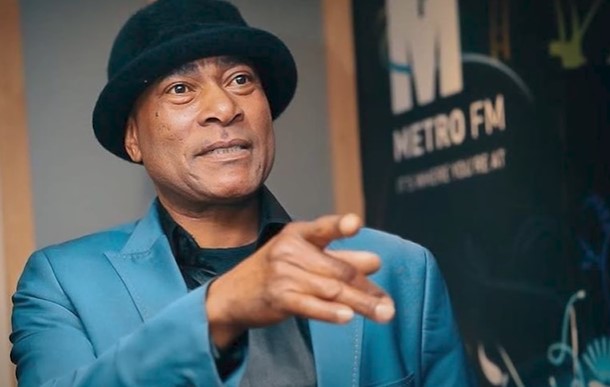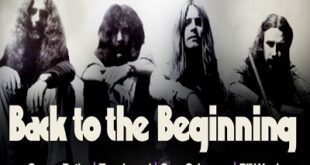
Victor Bogopane, also known as Doc Shebeleza, (7 July 1973 – 9 January 2025) was a South African kwaito artist. His compositions such as “Ingagara” ,”S’kumfete,” “Ebumnandini,” and “Ghets Ghetsa” made him a popular kwaito artist in the 1990s.
Doc Shebeleza, a name synonymous with South Africa’s vibrant Kwaito music scene, was more than just a musician. Born as Emmanuel Matsane, he rose to fame as a cultural icon, a pioneer, and a voice of resilience in the South African music industry. His sudden demise has left an irreplaceable void, but his legacy lives on through his timeless music and impactful contributions to the industry.
Early Life and Background
Doc Shebeleza was born in Daveyton, Gauteng, during the early 1970s, in a South Africa still under the grips of apartheid. Growing up in a township, he was exposed to the challenges faced by the majority of black South Africans during this era. Yet, it was this very environment that shaped his musical inspiration. His family’s love for traditional African music, combined with the growing influence of urban sounds, laid the foundation for his passion.
As a young boy, Emmanuel’s dreams extended far beyond his surroundings. He was deeply influenced by the sounds of bubblegum music and later the emergence of Kwaito, a genre born in the townships, which became the voice of a new, free generation.
The Rise to Fame
The name “Doc Shebeleza” became synonymous with the Kwaito movement in the 1990s. His debut album, “The Journey Begins”, catapulted him into stardom. With hit tracks like “Ebumnandini” and “Get Funky”, Doc Shebeleza’s music resonated deeply with the youth of South Africa.
His unique style, combining catchy lyrics with danceable beats, distinguished him from other artists. He was a storyteller, capturing the essence of township life while delivering messages of hope, resilience, and unity.
Doc Shebeleza and Kwaito Music
Kwaito, often described as the heartbeat of South African youth culture in the 1990s, emerged during a time of political transition. Artists like Doc Shebeleza used this genre to reflect the experiences, struggles, and aspirations of the black community.
Unlike other mainstream genres, Kwaito’s lyrics were often in vernacular languages, making it more relatable to the South African masses. Doc Shebeleza’s mastery of incorporating street slang and conversational tones in his music made him an authentic voice of his generation.
Memorable Albums and Tracks
Doc Shebeleza’s discography is a treasure trove of hits that continue to dominate playlists even years after their release. Some of his most iconic works include:
- “Ebumnandini”: A song that became a party anthem in the 90s, encapsulating the joyous spirit of the era.
- “Intwenjani”: A reflective piece showcasing his lyrical prowess and deep connection to his roots.
- “Skhothane”: A playful, yet socially aware track that highlighted youth trends in the townships.
His Impact on South African Music
Doc Shebeleza was more than an artist; he was a trailblazer. He paved the way for future Kwaito stars like Mandoza, Arthur Mafokate, and Trompies, inspiring them to embrace their heritage and use music as a form of expression.
His collaborations with other legends further cemented his status in the industry. Whether it was performing at packed stadiums or mentoring upcoming artists, Doc Shebeleza’s influence was profound.
Personal Life
Despite his fame, Doc Shebeleza remained deeply rooted in his community. Known for his charismatic personality and generosity, he often gave back to his hometown of Daveyton. Through various initiatives, he supported local talent, emphasizing the importance of education and self-belief.
His personal life was marked by both triumphs and challenges. While he enjoyed a successful career, he also faced struggles, including health issues and financial hurdles, which he openly spoke about in later years.
The Final Years
In the last decade of his life, Doc Shebeleza took a step back from the limelight but never stopped contributing to the industry. He focused on mentorship programs, helping aspiring musicians navigate the complexities of the music business.
His occasional performances were celebrated as nostalgic trips down memory lane for fans who grew up listening to his music. Despite facing health challenges, Doc Shebeleza’s spirit remained unbroken, and his love for music undiminished.
Legacy and Influence
The passing of Doc Shebeleza marks the end of an era, but his legacy is indelible. As one of the architects of Kwaito music, he will forever be remembered as a cultural icon who used his platform to uplift others. His songs continue to inspire a sense of pride and nostalgia among South Africans.
Today, his influence can be seen in the new generation of artists who fuse traditional Kwaito elements with modern sounds. Doc Shebeleza’s life and music remind us of the transformative power of art and its ability to bridge divides and bring people together.
Fans’ Tributes
The news of Doc Shebeleza’s passing has triggered an outpouring of tributes on social media. Fans, fellow musicians, and public figures have expressed their condolences and shared memories of his contributions. Hashtags like #RIPDocShebeleza and #KwaitoLegend are trending, with many revisiting his greatest hits in celebration of his life.
Doc Shebeleza’s story is one of resilience, creativity, and unwavering dedication to his craft. From the dusty streets of Daveyton to the global stage, his journey serves as an inspiration to countless individuals. Though he may no longer be with us, his music and the values he stood for will live on, ensuring that his legacy as the King of Kwaito remains immortal.
 Maui News
Maui News





